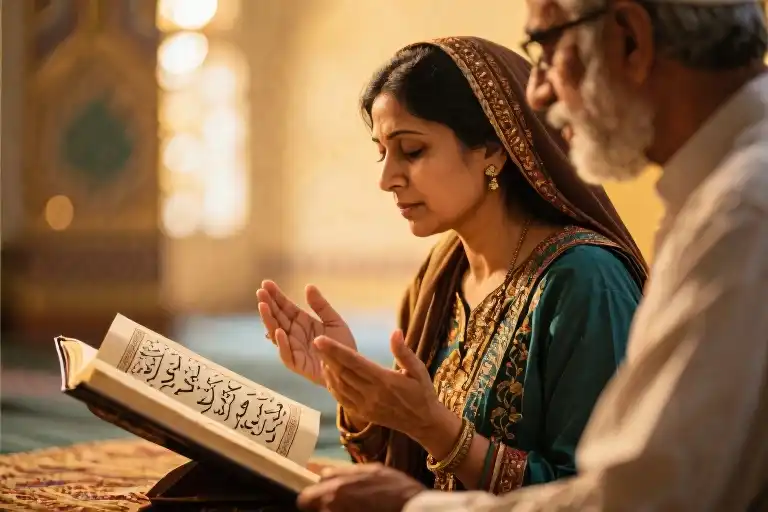The glow of smartphone screens casts pale light across tired faces late at night. Scrolling through another round of wedding photos—the diamond close-ups, the first kiss freeze-frames, the perfectly staged family portraits—something quiet but persistent stirs beneath the ribs. Between pastel-toned reception stories and honeymoon countdowns, a question lingers unasked: When the world appraises your worth by carat weight and shared last names, what currency does heaven use?
We’ve all felt the subtle shift at church potlucks when conversation pivots from “What is God teaching you?” to “Any special someone yet?” The way eyes dart away when you mention your solo mission trip but light up for engagement announcements. This cultural script equates marital status with personal value, as if a bare left ring finger indicates some fundamental lack.
Yet scripture paints a startlingly different portrait. The apostle Paul—whose spiritual legacy outshines most married believers—called singleness a “gift” (1 Corinthians 7:7). Jesus began his public ministry after thirty years of unmarried preparation. The prophetess Anna served God night and day in the temple without mention of spouse or children (Luke 2:36-38). Their lives whisper an alternative truth: Your identity isn’t found in a relationship status, but in your relationship with the One who assigned your purpose before time began.
This divine perspective dismantles our culture’s obsession with marital milestones. That persistent ache when yet another friend changes their Facebook status? It’s not a sign you’re falling behind—it’s proof you’re measuring yourself by the wrong standard. God’s timeline for your life doesn’t follow Instagram’s highlight reel. Those quiet years of spiritual growth, professional development, and character formation aren’t empty waiting rooms; they’re sacred workshops where your true identity gets forged.
Consider how we describe single people in the church: “Unattached.” “Unclaimed.” Language dripping with lack. Now hear heaven’s vocabulary: “Chosen.” “Set apart.” “Prepared.” The difference isn’t semantics—it’s warfare for your self-worth. Every time you internalize the world’s narrative that marriage completes you, you deny the cross’s finished work that already made you whole.
Perhaps this season isn’t about finding the right person, but becoming the right person—the fully alive, Christ-centered version of yourself no human relationship could ever define. After all, the same God who designed marriage also declared, “It is not good for the man to be alone” (Genesis 2:18) first formed that man from dust and called him “very good” while he was still solitary (Genesis 1:31). Your wholeness was never meant to be outsourced.
So tonight, when the glow of others’ joy makes your aloneness feel heavier, remember: The same hands that carved galaxies from nothing are shaping your story in this present darkness. What culture calls waiting, heaven calls preparation. What feels like delay is divine strategy. And that question about your worth? The answer was settled on a cross long before any ring ever could be.
The Cultural Vaccine Against Relationship Lies
Social media feeds overflow with diamond ring close-ups and perfectly staged wedding portraits. Church bulletins highlight couple’s retreats while listing ‘singles ministry’ in tiny font at the bottom. These aren’t harmless trends—they’re symptoms of a cultural virus that equates marital status with human worth.
The Marriage Illusion Factory
Romantic comedies teach us that life’s climax arrives at the altar. Reality shows portray singlehood as a problem needing urgent fixes. This industrial-strength narrative machine has convinced even faithful Christians that:
- A woman’s spiritual maturity is measured by her engagement ring
- Life’s purpose crystallizes when someone says ‘I do’
- Singleness indicates unfinished spiritual business
Yet Scripture paints a startlingly different picture. The apostle Paul considered singleness a gift (1 Corinthians 7:7). Jesus transformed the world during His unmarried years. The cultural obsession with marriage timelines often conflicts with divine timing.
Hidden Bias in Holy Halls
Church culture unintentionally reinforces secular values through:
- Activity Segregation: Bible studies divided into ‘marrieds’ and ‘singles’ rather than by spiritual maturity
- Leadership Filters: Unspoken preferences for married volunteers in visible ministries
- Celebration Hierarchy: Baby showers receiving tenfold the attention given to mission trip sendoffs
These patterns whisper dangerous lies: that marriage completes your identity in Christ, that unmarried believers are perpetually ‘in waiting,’ that God’s favor shines brightest through domestic milestones.
Your Value Binding Index
Let’s diagnose how deeply these messages have affected you. When you hear about a friend’s engagement, do you feel:
A) Pure joy for their happiness
B) Happy but with a pang of ‘when will it be me?’
C) Immediate self-doubt about your own timeline
If you answered B or C, cultural programming may have created neural pathways tying your worth to relationship status. The good news? Neuroplasticity means we can rewire these connections.
Three detox strategies:
- Media Fasting: For one month, mute wedding accounts and romance subplots
- Scripture Anchoring: Memorize Galatians 1:10 about pleasing God rather than people
- Achievement Journaling: Document non-relationship growth (career skills, prayer life, friendships)
This cultural vaccine won’t erase societal pressures, but it builds antibodies against identity erosion. As we’ll explore next, your single season isn’t a holding pattern—it’s sacred preparation ground with unique kingdom advantages.
The Three Pillars of Sacred Singleness
There’s an unspoken chronology we’ve absorbed from Sunday school flannelgraphs and romantic comedies – that life’s milestones should follow a predetermined sequence. But when we examine Scripture, the divine timeline looks startlingly different. Jesus’ own thirty-year preparation period before public ministry stands as the first pillar in our theology of singleness, a quiet rebellion against our culture’s obsession with early achievement.
The Time Pillar: Decoding Jesus’ Preparation Years
Those silent years between twelve and thirty weren’t divine oversight but intentional design. While historians speculate about Christ’s carpentry workshop in Nazareth, the spiritual significance is clear – maturation cannot be microwaved. In an era when Jewish men typically married by twenty, Jesus modeled sacred delay. His singleness wasn’t marking time but accumulating spiritual capital, storing up wisdom that would later feed multitudes both literally and figuratively.
Modern psychology confirms what Scripture demonstrates: the prefrontal cortex completes its development around age twenty-five. That biological fact takes on spiritual dimensions when we consider how Jesus’ unmarried state allowed undivided focus during this critical formation period. The sermons that would shake empires were being composed not in rabbinical schools but in the ordinary solitude of sawdust and splinters.
The Freedom Pillar: Paul’s Radical Focus Formula
When Paul declared unmarried believers could serve the Lord “with undivided devotion” (1 Corinthians 7:35), he wasn’t promoting spiritual elitism but recognizing a structural reality. Like an athlete in training, certain seasons demand single-minded concentration. The apostle’s first-century insight finds surprising validation in today’s attention economy, where neurological studies prove task-switching reduces productivity by 40%.
This pillar isn’t about relationship avoidance but recognizing singleness as a unique stewardship window. The early church father Tertullian called it “the opportunity of the present crisis” – that brief season when mobility, risk-taking, and intensive spiritual formation converge. For the Christian professional woman today, this might manifest as the ability to accept that overseas assignment, pursue graduate studies, or plant that ministry without negotiating domestic logistics.
The Mission Pillar: Esther’s Strategic Season
Before her royal coronation, Esther underwent twelve months of beauty treatments (Esther 2:12). The Hebrew reveals these weren’t merely cosmetic rituals but intensive preparation – myrrh representing death to self, spices symbolizing wisdom accumulation. Her singleness became the incubation period for a salvation assignment she couldn’t yet imagine.
This third pillar transforms how we view our own waiting rooms. That project you’re spearheading at work, that mentorship you’re investing in, that creative endeavor absorbing your evenings – these aren’t distractions from some imagined relational destiny but the very tools God is using to shape your unique contribution. Like Esther’s myrrh, your current circumstances are preparing you for moments when “such a time as this” will demand everything your single season has cultivated.
Together, these pillars form an architectural wonder – not a holding pattern but a holy greenhouse. The time Jesus took, the freedom Paul celebrated, the mission Esther prepared for – these aren’t ancient relics but living templates. Your singleness isn’t a blank page waiting for a romance to be written across it, but a vibrant manuscript already being inscribed with purposes that outlast any earthly relationship.
The 7-Day Transformation Lab
This is where rubber meets the road. All that theory about singleness and identity needs practical handles you can grip in daily life. Let’s build three concrete tools that will rewire how you experience this season.
Morning Anchors: Psalm 143:8 Template
The first hour after waking often sets the tone for single women battling societal noise. Try this four-part liturgy:
- Light (30 sec): Open curtains while whispering “The Lord is my light” (Ps 27:1)
- Posture (2 min): Stand palms-up reciting “Let the morning bring me word of Your unfailing love” (Ps 143:8)
- Mirror Work (1 min): Name three non-relational traits you appreciate about yourself
- Calendar Scan:
- Highlight one non-dating goal for the day
- Star moments for intentional solitude
This ritual replaces the instinctive phone-check for dating app notifications with centering practices. Over seven days, you’ll notice subtle shifts – less reflexive sighing at engagement announcements, more spontaneous gratitude for schedule flexibility.
Social Armor: The Sandwich Response
Family reunions and church coffee hours become minefields when Aunt Martha asks “Why still single?” for the fifteenth time. The sandwich method layers grace and truth:
Top Bread: Affirm their heart
“I so appreciate you caring about my happiness…”
Filling: Set boundaries with scripture
“Just like Paul said in 1 Corinthians 7, this season lets me focus on serving God in special ways…”
Bottom Bread: Redirect positively
“Actually, I’d love your advice on my new mentoring program!”
Practice these scripts aloud until they feel natural. Record yourself to eliminate defensive tones. By day four, you’ll start anticipating these conversations as opportunities to educate rather than endure.
Achievement Arbor
Society measures life milestones in relationships had and children born. Create an alternative visual:
- Draw a tree trunk labeled “My Growth”
- Add seven branches representing life domains:
- Spiritual
- Intellectual
- Creative
- Professional
- Physical
- Social (non-romantic)
- Emotional
- Each evening, hang one “fruit” per branch noting progress:
- “Finished theology course” (Intellectual)
- “Ran 5K” (Physical)
- “Hosted Bible study” (Spiritual/Social)
By week’s end, you’ll have 49 visible proofs that singleness means productivity, not stagnation. Snap a photo when comparison creeps in – this is your “relationship status” update worth sharing.
These tools work because they:
- Reframe time from empty waiting to active preparation
- Redirect focus from lack to abundance
- Redeem pressure into purposeful response
The seventh day isn’t an ending but an equipped beginning. You’ll carry forward not just methods, but a renewed understanding: what culture calls waiting, Scripture calls strategic positioning.
The Sacred Delay Manifesto
The closing chapter of this journey deserves more than a polite farewell. It demands a declaration—one that echoes through the quiet spaces where you’ve questioned your worth, through the family gatherings where you’ve defended your timeline, through the church pews where you’ve felt like half a person in a couples’ world.
Singleness Reinterpreted
Isaiah 54:1 takes on radical new meaning when read through the lens of sacred singleness: “Sing, barren woman, you who never bore a child; burst into song, shout for joy, you who were never in labor.” This isn’t passive waiting music—it’s victory anthem composed specifically for your season of preparation. The prophet intentionally links spiritual fruitfulness with physical barrenness, dismantling the ancient world’s equation of womanhood with childbearing—a precursor to our modern obsession with marital status as identity.
Your current assignment isn’t a holding pattern. It’s the runway where God strips away cultural baggage so you can take off unencumbered. Like Esther’s twelve months of purification before meeting the king (Esther 2:12), this is your myrrh-and-spice season—the divine delay where character is distilled to its essence.
The 30-Day Sacred Delay Challenge
Transition from theory to practice with these daily micro-actions designed to rewire your self-perception:
- Morning Affirmations: Replace “I’m single” with “I’m strategically positioned” during your first waking moments
- Cultural Detox: For every wedding photo you scroll past, intentionally celebrate a non-romantic milestone from your friends’ lives
- Legacy Mapping: Sketch your ideal 80th birthday toast—what non-marital accomplishments do you want celebrated?
- Scriptural Anchors: Memorize 1 Corinthians 7:34 as armor against social pressure: “An unmarried woman is concerned about the Lord’s affairs: Her aim is to be devoted to the Lord in both body and spirit.”
This isn’t about filling time until marriage arrives—it’s about mining the unique advantages of your current status. The early church understood this: Paul’s letters reveal unmarried believers often spearheaded dangerous missionary work impossible for those with family obligations. Your flexibility right now is kingdom currency.
The Sacred Delay Alliance
You’re invited to join a countercultural movement—one that measures seasons by spiritual growth rather than relationship milestones. Here’s your initiation:
- Wear Your Status: When asked “Why aren’t you married yet?” respond with “Because I’m completing my divine prerequisites”
- Subvert Expectations: Host a “Purpose Shower” celebrating vocational callings instead of wedding registries
- Document the Journey: Keep a “Delay Diary” noting daily evidences of God’s preparation work
This isn’t a consolation prize for singleness. It’s a reconnaissance mission into undiscovered dimensions of your identity. Like David’s wilderness years before the throne, your present challenges are forging the backbone of future leadership.
Coming Soon: The Unmarried Advantage
In our next exploration, we’ll decode how Paul’s celibacy became his strategic edge in church planting—and how your current relational status might hold similar vocational power. You’ll receive:
- First-century celibacy models applicable to modern workplaces
- Time management strategies leveraging singlehood’s flexibility
- Case studies of unmarried women who changed history
Until then, let Isaiah’s barren woman be your muse. Her song wasn’t born from resignation, but revelation—a defiant joy that confused conventional wisdom. That same melody is yours to claim. Start singing.





